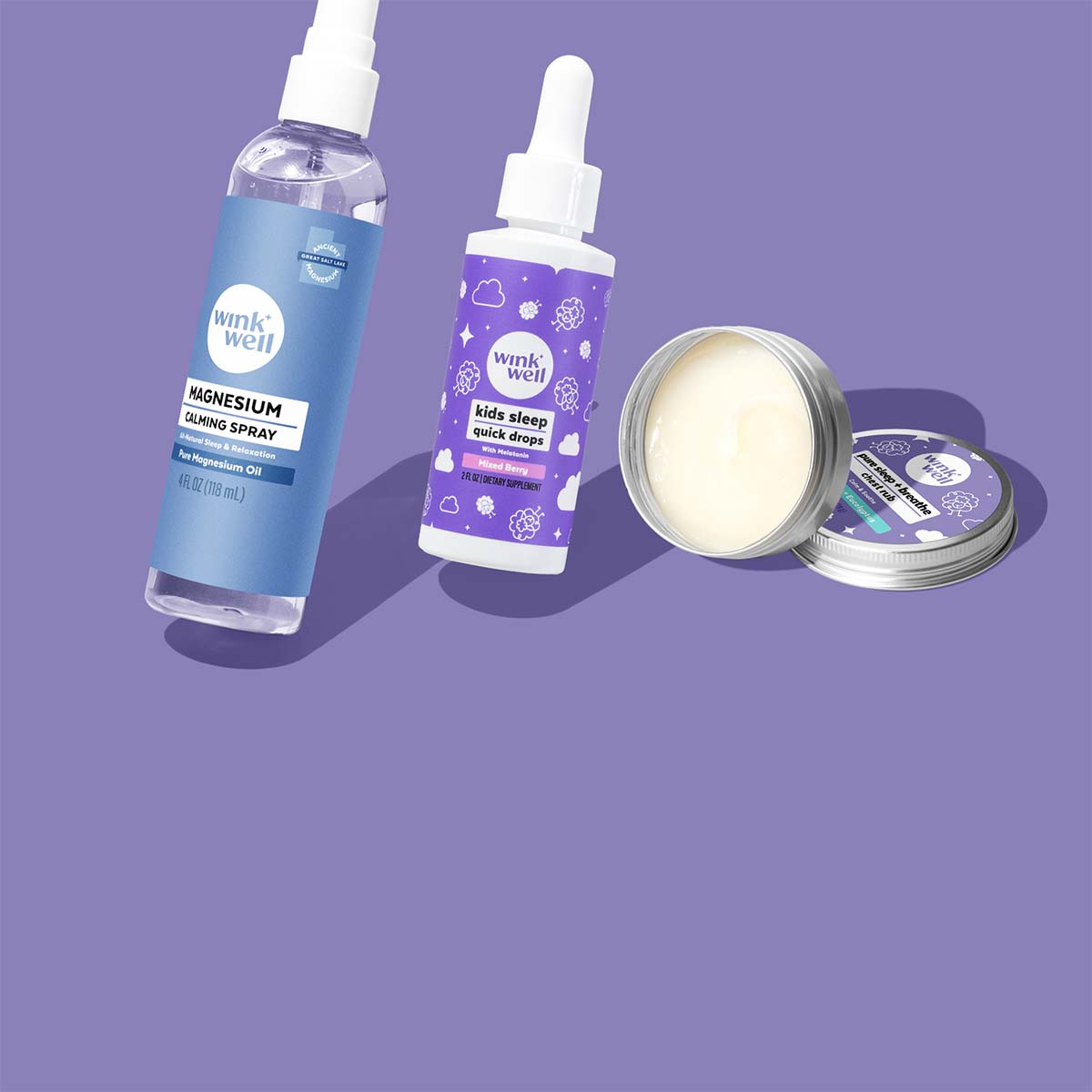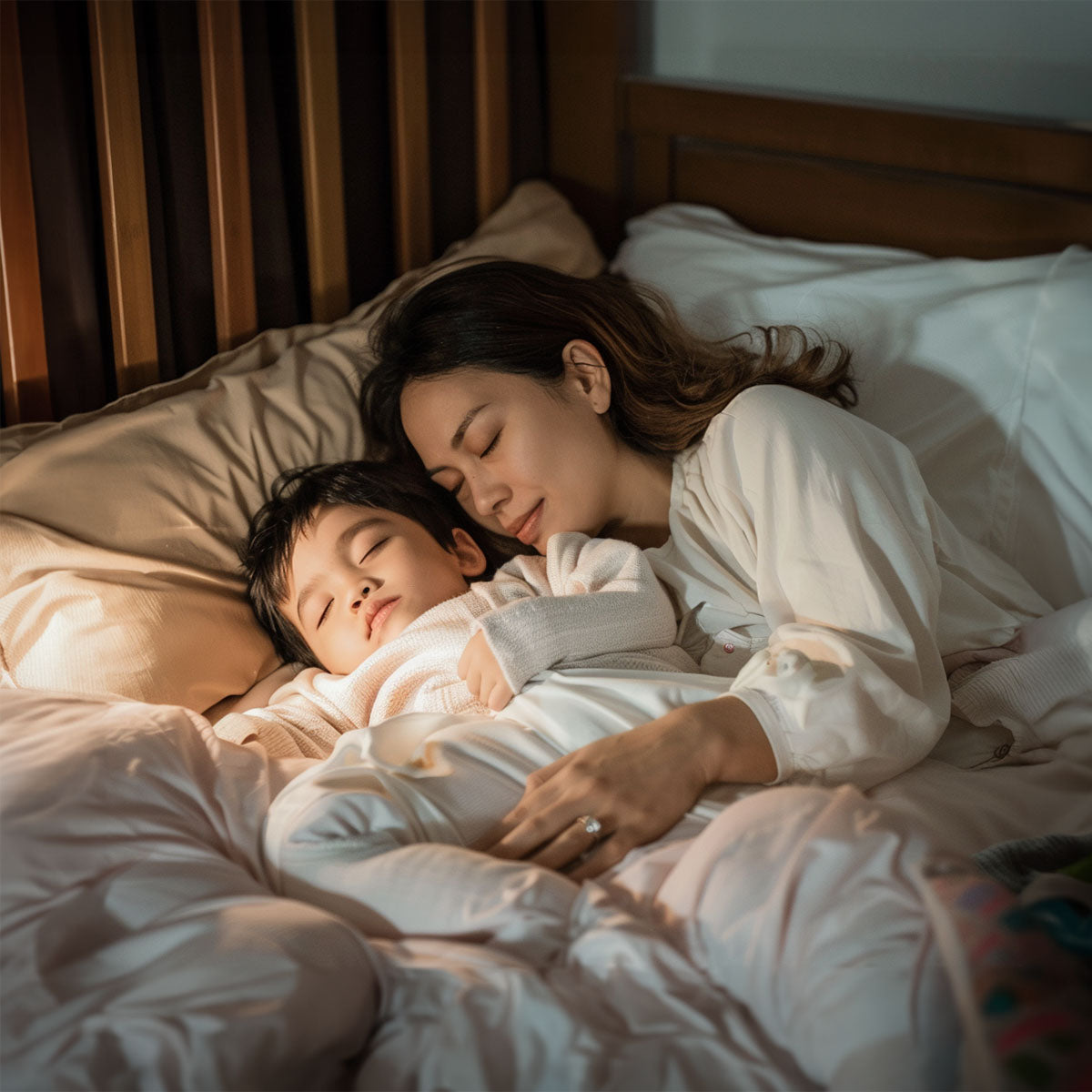Navigating bedtime can be particularly tough for children with Autism Spectrum Disorder (ASD). If your child struggles with sleep, you’re not alone. Many kids on the autism spectrum face sleep issues, making it harder for them to get the restful sleep they need. Let's explore why this happens, how melatonin plays a role, and how Kids Sleep Drops can make all the difference.
The Melatonin Challenge for Kids with Autism
Melatonin, a hormone that regulates our sleep-wake cycles, is produced by the pineal gland in response to darkness. It helps signal that it’s time to sleep. However, children with ASD often have different melatonin patterns compared to neurotypical kids:
- Lower Melatonin Production: Studies show that children with ASD tend to produce less melatonin at night. Research published in the Journal of Autism and Developmental Disorders found their melatonin levels significantly lower than neurotypical children, making it harder for them to fall and stay asleep.
- Active Central Nervous System: Kids with autism often have a more active central nervous system, making it tough for them to wind down. This heightened activity leads to prolonged bedtime routines and disrupted sleep.
Neurodiversity and ADHD
Melatonin production issues aren’t exclusive to autism. Children with ADHD also face unique challenges:
- Delayed Melatonin Production: According to research in Pediatric Neurology, children with ADHD may produce melatonin later, disrupting their sleep-wake cycle. This delay can lead to difficulties falling asleep at a conventional bedtime, causing restless nights and daytime fatigue.
Why Sleep is So Crucial
Good sleep is essential for everyone, but particularly for children with autism and ADHD. Bad sleep can lead to a series of negative life-long results:
- Behavioral Impact: Insufficient sleep can exacerbate behavioral issues. A study in The Journal of Child Psychology and Psychiatry found that sleep problems can lead to increased irritability and hyperactivity.
- Cognitive and Academic Performance: Sleep supports learning and memory. Neuropsychology Review highlights that poor sleep can hinder cognitive function and academic performance.
- Physical Health: Chronic sleep deprivation can weaken the immune system, making children more susceptible to illnesses, as noted in the Journal of Pediatrics.
- Social Skills: Inadequate sleep can impair social skills by increasing irritability and frustration, making it harder for children to manage emotions and interact positively with peers.

Melatonin Supplements: A Helping Hand
Melatonin supplements like Kids Sleep Drops can address these sleep issues by:
- Boosting Melatonin Levels: These drops help supplement melatonin levels, promoting a more regular sleep pattern. Their precise formulation ensures your child gets the right amount of melatonin.
- Long-Term Usage: A study published on PubMed shows that long-term usage of melatonin proves to be beneficial specifically for kids with Autism Spectrum Disorder.
- Being Gentle and Safe: The formula is non-habit forming, so you can use it without worrying about dependency. It provides effective support without side effects.
- Fitting Seamlessly into Bedtime Routines: With a natural berry flavor, these drops mix easily into milk or juice, making bedtime smoother.
The Importance of High-Quality Melatonin
When choosing a melatonin supplement, quality is key. Kids Sleep Drops stand out because:
- Effective Dosing: They deliver the precise dose needed to support healthy sleep patterns, helping kids fall asleep, stay asleep, and wake up refreshed.
- Avoiding Cheap Alternatives: Lower-quality melatonin might have inconsistent dosing or fillers affecting effectiveness. Cheaper options often come in high doses but lack the precise formulation needed for consistent results.
Autism-Friendly Bedtime Routine
A calming bedtime routine is also crucial, especially for kids on the spectrum that need extra help calming down their nervous system. When used with melatonin, it can change the entire game. Here are some tips:
- Stick to a Consistent Schedule: Maintain the same bedtime and wake-up time daily to regulate your child’s internal clock.
- Create a Soothing Environment: Use soft lighting, calming colors, and a comfortable mattress. Consider white noise machines to reduce disruptions.
- Implement a Relaxing Pre-Sleep Routine: Engage in calming activities like reading or gentle stretching before bed.
- Limit Screen Time: Avoid screens an hour before bedtime to prevent interference with melatonin production.
- Provide Comfort Items: Allow favorite items like a blanket or stuffed animal to enhance your child’s sense of security.
The Benefits of Better Sleep
When children with autism and ADHD get the sleep they need, everyone benefits:
- Improved Mood and Behavior: Better sleep leads to a happier child with fewer behavioral issues.
- Enhanced Cognitive Function: Restful nights support learning and memory, aiding school performance.
- Better Social Skills: Well-rested children are more emotionally stable and better able to manage social interactions, leading to improved relationships with peers.
Conclusion
Melatonin issues in children with autism or ADHD can significantly impact their daily lives and well-being. The unique melatonin deficiencies and heightened central nervous system activity often make bedtime challenging. However, with the right support and routines, these challenges can be transformed.
Kids Sleep Drops from Wink Well offer a remarkable solution, providing high-quality melatonin to help recalibrate sleep patterns. By integrating these drops into your child’s routine, you’re investing in better sleep and a brighter, more energized day. Sweet dreams are within reach!

Read More
Not all Melatonin is Created Equal: The Sleep Dilemma







Leave a comment
All comments are moderated before being published.
This site is protected by hCaptcha and the hCaptcha Privacy Policy and Terms of Service apply.